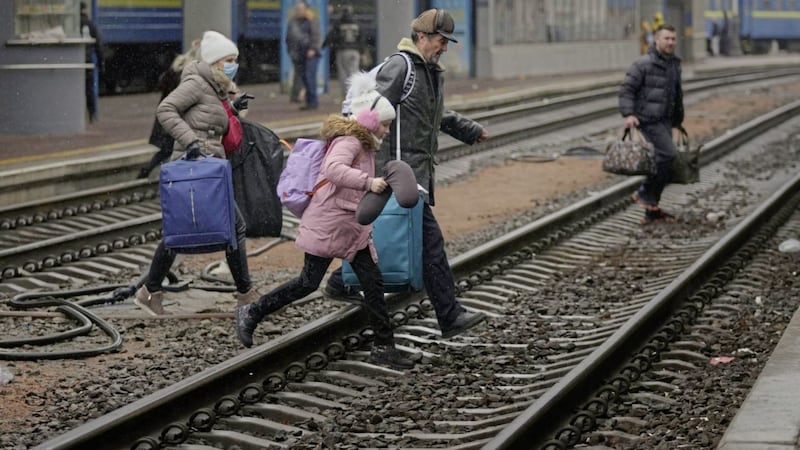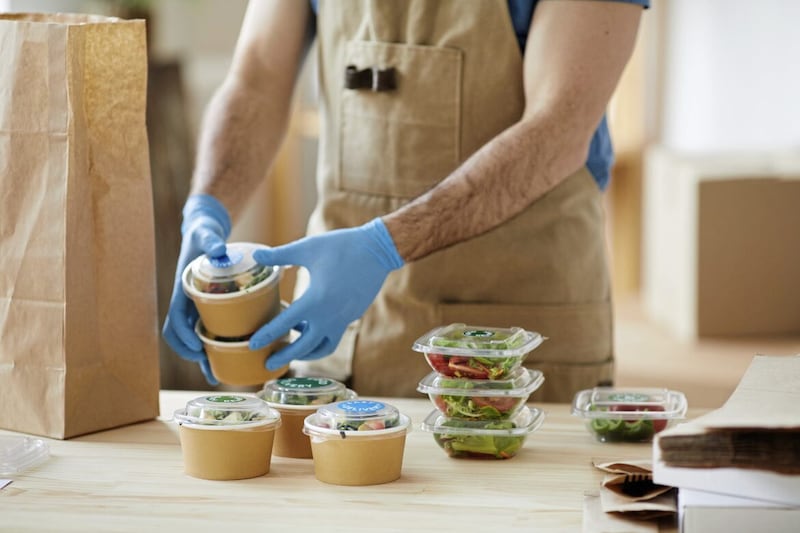OVER recent weeks, the UK has been battered by Dudley, Eunice and Franklin. 'G' will be Gladys and we await to hear the 'H' name of the subsequent storm that follows. Metaphorically, we are already aware of the advancing 'T' storm, or Tax storm. April will see us showered with more tax increases most notably the hike in national insurance contributions.
Other stealth taxes announced last year are set to be much more painful due to inflation being much higher than expected. These include the four-year freeze on the various income tax thresholds and the five-year freeze on the pension lifetime allowance.
But households and businesses are most concerned about the 'I' storm that has been battering their finances with increasing force. The forecast is that the 'I' storm will get worse and will be with us for the rest of the year and beyond. I am, of course, referring to inflation.
The cost-of-living crisis has worsened considerably. The outbreak of war in Ukraine is first and foremost a human crisis and tragedy but it also has effectively thrown fuel on the cost-of-living and cost of doing business fires that were already raging. Vlad the invader has effectively added a 'Putin Premium' on top of that.
But if we rewind back to the latest inflation news. UK CPI inflation edged up from 5.4 per cent year-on-year in December to 5.5 per cent in January. That's the highest rate since March 1992.
The headline rate conceals the two-speed inflation rate between consumer goods and services. Consumer goods prices increased by 7.2 per cent y/y in January and more than double the 3.2 per cent annual rise for consumer services. Goods inflation is currently rising at its highest rate since October 1990.
The sources of inflation within consumer goods are broad based. For example, pasta products jumped by 14.9 per cent y/y, household furniture rose by a similar amount and second-hand cars were almost 29 per cent higher relative to a year ago.
Food price inflation has become more noticeable too with prices rising by 4.5 per cent y/y. The last time food prices were rising faster was over eight years ago. The chairman of Tesco recently warned that food prices were expected to increase by 5 per cent in the coming months. A significant hike, but this was before the 'Putin Premium', so we are now looking at even more than that. Vlad the Invader is also Vlad the Inflator.
If you worry about rising prices, you are not alone. Last month the Bank of England raised the bank rate to 0.50 per cent from 0.25 per cent, the first time since 2004 that rates were hiked in two consecutive meetings. And four members voted for a 0.50 per cent hike, showing how concerned they were about inflation. We can expect the BoE to deliver a three-in-a-row with another rate hike on St Patrick's Day.
According to the BoE's latest forecasts, inflation is set to reach 7.25 per cent in April but post-invasion, we can expect this to exceed 8 per cent. And with wage growth failing to keep up with price rises, UK households are facing the worst squeeze in real disposable income in 30 years, with soaring energy prices the main culprit. Food prices will follow.
Petrol and diesel prices hit record highs before the Russian invasion of Ukraine. Now, the invasion has unleashed a new wave of uncertainty. Forecourt prices are expected to hit £1.60 per litre. The Ukraine may be thousands of miles away, but the impact will be felt by businesses and households at home.
Global stock markets are experiencing significant volatility. But the main impact will be on rising energy costs. We've already seen the price of Brent crude test $120 per barrel, a decade high. When expressed in sterling though, this represents an all-time high of over £86 per barrel. That compares with the pandemic low of £15.70 in April 2020.
Northern Ireland's domestic home heating oil hit £435 for 500 litres last week, up 36 per cent in a week. Europe's wholesale gas price also surged by 69 per cent at one point during day one of the invasion; the day Firmus had already increased its prices by one-third. Further rises are therefore in the post.
Commodity prices saw their steepest weekly rise on record in the last week. We can also expect further significant increases in food (remember the Ukraine is known as the breadbasket for Europe) and energy prices on top of what the Bank of England and other forecasters were already expecting.
Lenin is credited with saying: "Wheat is the currency of currencies". Wheat prices jumped to a decade-high which will hit the price of household favourites such as Weetabix (other wheat-based cereal biscuits are available). We've already seen supply-chains disrupted by the pandemic and Brexit. Now exporting wheat out of the Ukraine has ground to a halt. And Ukrainian farmers have downed tools and picked up arms. A year ahead, this will all lead to prices rocketing and potentially have severe repercussions including hunger in many parts of the world.
Here, in the near-term, beleaguered household budgets will be stretched even further with additional increases in food and fuel prices. More spending on food and utility bills means less for discretionary spending such as retail, hospitality and leisure. Those businesses reliant on consumer spending will be hardest hit. Some local manufacturing firms exporting to Russia and its commodities sector will be unable to trade due to the new sanctions. According to HMRC there was £55million of export sales from NI to Russia in 2020.
Business research suggests that we will see the effects of Covid gone from our economy by the third quarter of 2022. But we have a significant new crisis to contend with. Who would have thought that three weeks ago we could see so much happen in such a short space of time? There have been dramatic policy U-turns in places like Germany, unprecedented sanctions and a corporate exodus from Russia that has effectively turned it into a pariah state. Covid restrictions are gone, but Russia is now in a new form of lockdown, being increasingly locked out of the global economy. And who knows what we might see in the weeks ahead.
As another Vlad (Lenin) is credited with saying: "There are decades where nothing happens; and there are weeks where decades happen".
:: Richard Ramsey is Northern Ireland chief economist at Ulster Bank
:: Next week: Brendan Mulgrew








